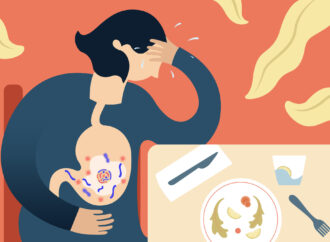Introduction
Health agencies across the United States are advising consumers to read labels carefully before enjoying their favourite autumn beverage: apple cider. Although cider may seem like a traditional treat, not all varieties are safe for consumption. So, paying attention to one crucial detail can help prevent foodborne illness.
Health professionals warn that unpasteurized apple cider can pose risks to vulnerable groups, including children, seniors, expectant mothers, and individuals with compromised immune systems. The U.S. Food and Drug Administration (FDA) has also issued seasonal warnings about the dangers of consuming unpasteurized juices that may harbour harmful bacteria.
Dangers of Unpasteurized Cider
In recent years, several outbreaks of foodborne illnesses have linked raw apple cider to contamination. In 2017, seven individuals in Northern California fell ill after drinking unprocessed cider contaminated with E. coli. Additionally, two years ago, 13 confirmed cases of E. coli infections tied to unpasteurized apple juice came from an orchard near Placerville, California. These incidents highlight the risks associated with unprocessed juices, which can contain harmful bacteria such as E. coli, Salmonella, and Cryptosporidium.
Pasteurization plays a critical role in ensuring the safety of apple cider. It uses heat or ultraviolet light to eliminate harmful bacteria. If producers do not pasteurize fresh apples used for cider, bacteria from the orchard can transfer to the final product, especially if the fruit is damaged or not washed properly.
According to the FDA, consumers may experience symptoms of foodborne illness from unpasteurized juices, including vomiting, diarrhoea, stomach pain, fever, and body aches. These symptoms typically appear within one to three days after consuming the contaminated beverage, though they may not manifest until up to six weeks later in some cases.
Tips for Identifying Safe Cider
Most juice and cider available in American supermarkets undergo pasteurization, making them safe for general consumption. However, unprocessed cider often appears at farmers’ markets, cider mills, health food stores, and juice bars. Typically, consumers can find unpasteurized cider in the refrigerated section, where it may lack clear labelling.
The FDA requires all packaged, non-pasteurized juices to carry a distinct warning label stating: “WARNING: This product has not undergone pasteurization and may contain harmful bacteria, which could result in severe illness for children, the elderly, and individuals with weakened immune systems.”
However, cider sold by the glass at venues such as farmers’ markets or apple orchards does not require this label. Consumers should always ask vendors whether the cider has undergone pasteurization to ensure its safety before purchasing.
While marketers often promote unpasteurized cider as a “natural” or traditional product, health experts emphasize that the potential risks far outweigh any perceived benefits, especially for vulnerable populations.
Source: Food Safety News
 Food Manifest
Food Manifest 
















